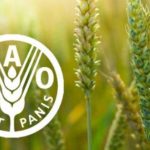International Forum on Beijing World Agricultural Systems Press Release n. 1
A FAO APPEAL FOR GOOD WATER AND THE PROTECTION OF SMALL AGRICULTURAL PRODUCERS TO PREPARE THE WATER AND FOOD CRISIS
Pietro Laureano, president of the International Institute of Traditional Knowledge, at the opening conference of the FAO International Forum on World Agricultural Systems, opened today in Beijing, has appealed to ensure that all peoples have the right to water by countering attempts at Privatization in various countries and to protect the traditional techniques and systems of knowledge that have guaranteed people access to water and food autonomy over the centuries.
The Forum entitled “Dialogue between Farming Cultures” co-ordinated by FAO’s Parviz Koohafkan focused on the vital responses to the vital livelihoods of agriculture in relation to the challenge of climate change and ongoing transformations. The Forum saw the participation of international scientists, peasant organizations, NGOs and government representatives from all over the world. The speakers stressed that agriculture and traditional knowledge can make a fundamental contribution to food production and water management by encouraging and assisting small farmers and safeguarding the heritage of identity and biological diversity And cultural heritage inherent in local wisdom.
Pietro Laureano presented the International Institute of Traditional Techniques realized in Florence together with UNESCO and the proposal of the World Bank for Traditional Knowledge (www.tkwb.org), which will honor the Prince Charles of England as Honorary President. In his speech he said:
“Climate change is not a new phenomenon in Africa and in the world. Until the dawn of agriculture farmers have faced the unpredictability and the environment and climate variability. Precisely these conditions have forged local knowledge that is capable of responding to adversity by appropriate water capture and distribution techniques, soil protection, recycling, and optimum energy uses. These techniques form an extraordinary reservoir of biological diversity and sustainable knowledge.
However, it is the first time in the history of the planet that climate change occurs because of human intervention and is accompanied by factors that make it difficult to answer.
The first factor is the time. The speed of triggered processes prevents gradual, natural and cultural adaptation, which allowed progressive adaptation to new conditions.
The second factor is the state of degradation of physical and social conditions. Soils are exhausted by industrial agriculture and massive urbanization. Cultures are emptied of emigration, poverty and identity loss.
The third factor is the progressive expropriation from the people to power groups of those goods that, like water, have always been considered commonly and meticulously handled with pragmatic and community rights.
Industrial agriculture has produced large areas for monoculture and supported by irrigation and artificial fertilization, herbicides and pesticides. It has so destroyed that mosaic landscape made of terraces, dry walls, cultivated varieties, rows of trees, drains, which guaranteed soil protection and water retention. Urbanization has emptied the mountainous areas by eliminating human gaps in erosion and determined large cemented surfaces on the coasts and plains, hindering the water absorption in the foothills. Water management groups have eliminated all unconventional collection methods by destroying autonomy and parsimony and favoring large works and wastes. Situation that privatization processes could dangerously increase. ”
Pietro Laureano has therefore appealed for wealthy countries not trying to solve hunger in the world by increasing their agricultural output but guaranteeing the maintenance of water as a common good: it is not necessary to produce for the poor but allow the poor to produce; It does not solve the water crisis by expropriating people but by guaranteeing the public management of the vital water.








